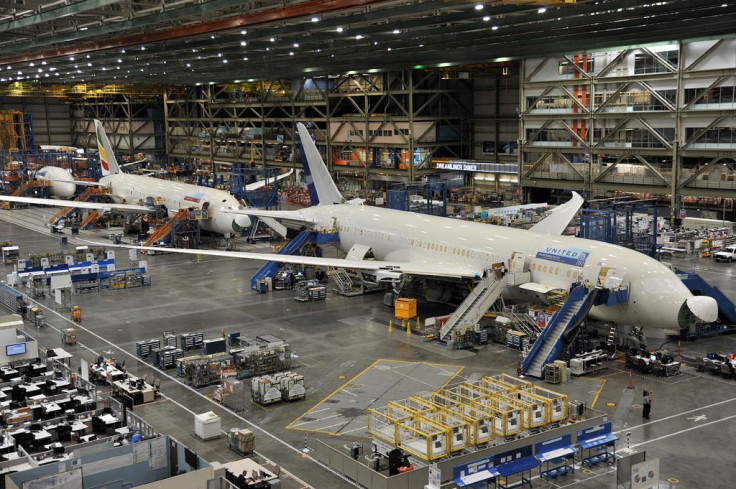US January Durable Goods Orders Better Than They Look

Orders for big-ticket manufactured goods fell in January due to a sharp decline in commercial and defense aircraft orders. But excluding the volatile transportation sector, demand rose solidly for a fifth straight month and by the most in more than a year, suggesting companies are confident about their business prospects.
Overall orders for durable goods -- products designed to last at least three years -- were down 5.2 percent last month from December, the Commerce Department said Wednesday.
The report, however, is a lot better than the headline suggests, even after factoring in the downward revision to December's gain, which was trimmed to 3.7 percent month-over-month from 4.6 percent.
January's decline was largely due to a 34 percent month-over-month cutback in commercial aircraft orders and a 63.8 percent month-over-month reduction in defense aircraft orders. Overall, transport orders fell by 19.8 percent in January from the previous month, more than reversing a 9.9 percent month-over-month increase in December.
“Aircraft orders are notoriously volatile and say little about the short-term outlook for actual shipments because the planes won't be built for a year or more,” said Paul Ashworth, chief U.S. economist for Capital Economics, in a research note. Boeing reported orders for only two planes in January, down from 183 in December.
Non-defense capital goods orders excluding aircraft – a closely-watched proxy for business spending plans – jumped 6.3 percent, the biggest gain since December 2011, after slipping 0.3 percent in December. Economists were looking for a 0.2 percent rise.
New orders for machinery rose 13.5 percent, the best gain since May 2010. And, excluding transportation, total durable goods orders rose 1.9 percent.
Ashworth said the underlying strength in durable goods orders “suggests business investment started the New Year on a particularly strong note, possibly because the late fiscal cliff deal removed some of the uncertainty that had been holding businesses back.”
© Copyright IBTimes 2024. All rights reserved.






















